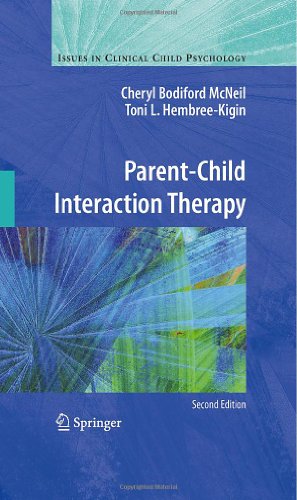

Most ebook files are in PDF format, so you can easily read them using various software such as Foxit Reader or directly on the Google Chrome browser.
Some ebook files are released by publishers in other formats such as .awz, .mobi, .epub, .fb2, etc. You may need to install specific software to read these formats on mobile/PC, such as Calibre.
Please read the tutorial at this link: https://ebookbell.com/faq
We offer FREE conversion to the popular formats you request; however, this may take some time. Therefore, right after payment, please email us, and we will try to provide the service as quickly as possible.
For some exceptional file formats or broken links (if any), please refrain from opening any disputes. Instead, email us first, and we will try to assist within a maximum of 6 hours.
EbookBell Team

5.0
28 reviewsOver the past two decades, Parent-Child Interaction Therapy (PCIT) emerged as a leading-edge method for helping parents improve their children's disruptive and oppositional behavior. Today, PCIT has a robust evidence base; is used across the country in settings as diverse as hospitals, mental health centers, schools, and mobile clinics; and is rapidly gaining popularity in other parts of the world. In keeping with this increasing recognition of PCIT's effectiveness, the authors of Parent-Child Interaction Therapy present this expanded clinical edition to keep readers up to date on new practice developments, current treatment protocols, and the latest research findings.
This update retains the fundamentals as detailed by PCIT's founder, Dr. Sheila Eyberg, including an overview of the therapy, detailed description of the course of treatment, and handout materials. The text goes further to explore the evolution of PCIT outside the original target ages of three-to-six (including preventive PCIT for very young children at risk) and examines the use of PCIT with special child populations, such as abuse victims and those with ADHD. Contributing experts discuss uses of the therapy in school, at home, with minorities, and with highly stressed families. But regardless of the population, setting, or topic covered, interventions remain faithful to basic PCIT principles and methods.
New features of the expanded second edition include: